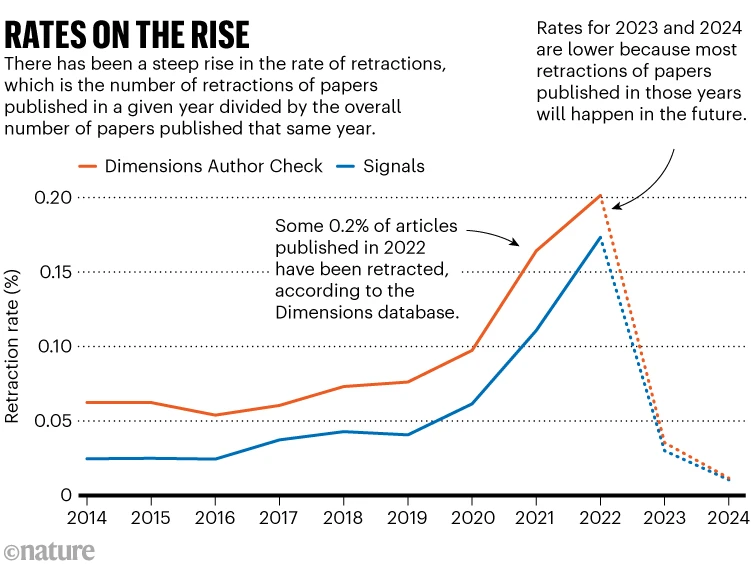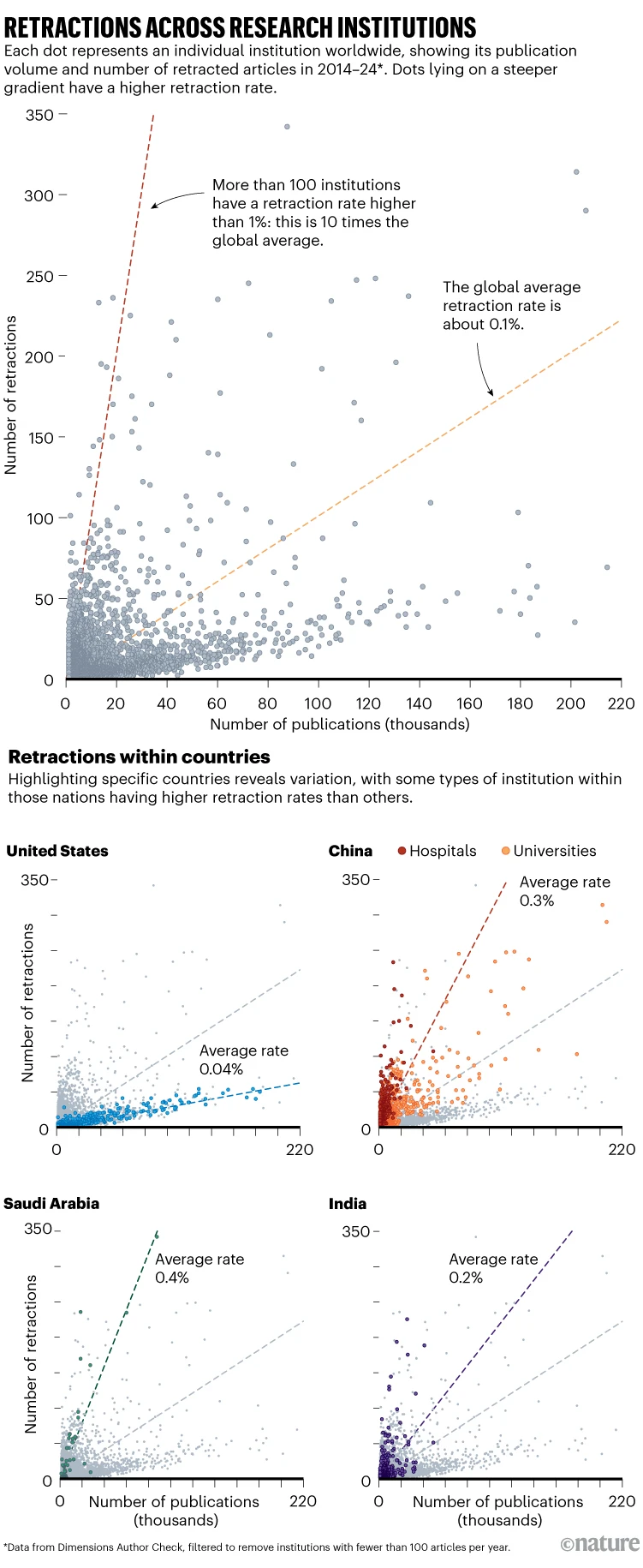ME/CFS Science Blog
Senior Member (Voting Rights)
New blog post about fraud and research misconduct in scientific research.
https://mecfsskeptic.com/how-many-scientific-papers-are-fake/
Twitter summary:
https://twitter.com/user/status/1901672256738095441
1) How many scientific papers are fake?
A new review argues that fabrication and falsification of scientific results may be more common than previously thought. It estimates that approximately one in seven papers are fake.
2) In the past few people were actively looking for fraud but in the past 15 years, a group of data sleuths have developed various techniques to screen for research misconduct.
3) This has resulted in a flood of retractions: from highly cited papers on Alzheimer’s, controversial COVID-19 treatments to publications by the Dana-Farber Cancer Institute. Even the president of Stanford University had to resign.
4) In our blog post we look at some high profile examples of research misconduct, the smart tools data sleuths use to detect problematic papers, and how this is slowly changing the scientific literature.
5) Although still at a small scale and driven mostly by volunteers, the valuable work of research integrity advocates signals a hopeful change in the psychological and biomedical sciences.
https://mecfsskeptic.com/how-many-scientific-papers-are-fake/
Twitter summary:
https://twitter.com/user/status/1901672256738095441
1) How many scientific papers are fake?
A new review argues that fabrication and falsification of scientific results may be more common than previously thought. It estimates that approximately one in seven papers are fake.
2) In the past few people were actively looking for fraud but in the past 15 years, a group of data sleuths have developed various techniques to screen for research misconduct.
3) This has resulted in a flood of retractions: from highly cited papers on Alzheimer’s, controversial COVID-19 treatments to publications by the Dana-Farber Cancer Institute. Even the president of Stanford University had to resign.
4) In our blog post we look at some high profile examples of research misconduct, the smart tools data sleuths use to detect problematic papers, and how this is slowly changing the scientific literature.
5) Although still at a small scale and driven mostly by volunteers, the valuable work of research integrity advocates signals a hopeful change in the psychological and biomedical sciences.


